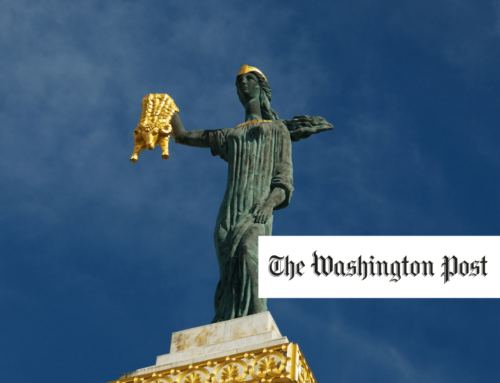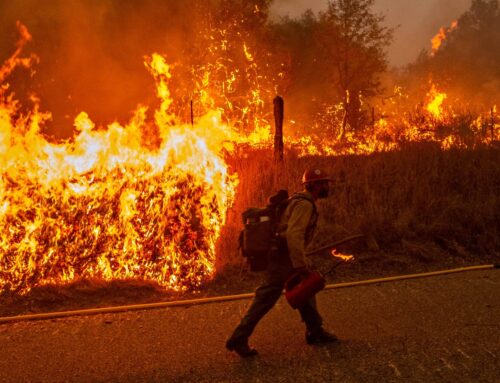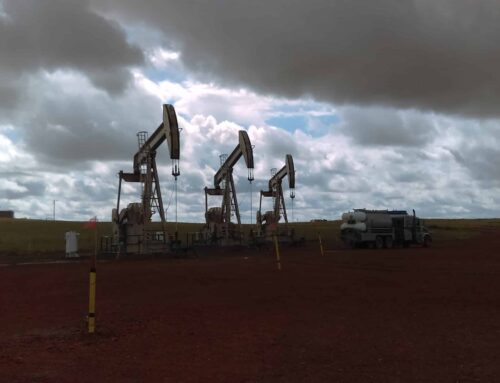U.S. Sen. Michael Bennet is calling on the Interior Department to get moving on reforming the bonding requirements for oil and gas operators on public lands to help ensure the costs of plugging old wells and cleaning up associated well sites don’t have to be covered by taxpayers.
The Interior Department in a 2021 review of the Bureau of Land Management oil and gas leasing program had identified in part a need for bonding reforms, but has yet to take action on such reforms. In June, the White House released a regulatory agenda being considered by federal agencies that included bonding reforms among other Interior oil and gas program revisions, but no bonding-reform proposal has been forthcoming yet.
In a letter to Interior Secretary Deb Haaland, Bennet called on her to move forward on rulemaking to “address inadequacies in the federal oil and gas system as was included” in the regulatory agenda.
“By taking steps to fix this broken system, we will help ensure that companies ─ not taxpayers – bear the costs for cleaning up drilling sites, while ensuring responsible stewardship of our federal lands,” Bennet wrote.
A 2019 Government Accountability Office report found that federal bonds don’t provide adequate financial assurance because most are set at minimum levels and haven’t been adjusted for inflation since the 1950s and 1960s. The BLM’s minimum requirements are $10,000 per individual lease, or alternatively $25,000 for a blanket, statewide bond or $150,000 for a nationwide one. Legislation that Bennet continues to pursue would require a minimum bond or other financial assurance of $150,000 per lease or $500,000 for a statewide bond.
Earlier this year, the Colorado Oil and Gas Conservation Commission adopted new rules that require far stricter financial assurance requirements than are required by the BLM. For now, companies are exempted from the more stringent state rules in cases where they already have provided federal financial assurance for the same well, oil and gas location or facility. That exemption will continue until no later than 90 days after the effective date of any BLM rule updating the federal bonding requirements, or no later than Oct. 15 of next year, whichever comes first.
After that, state oil and gas regulators will determine in the case of individual companies if the financial assurance required by the federal government is substantially equivalent to the state requirement, and if not, what additional, non-duplicative financial assurance should be required by the state.
Bonding requirements are intended to help ensure that money is available for dealing with old wells and sites in cases such as their corporate owners becoming defunct and leaving the facilities “orphaned.”
“(T)he challenge that dangerous orphaned wells pose on our federal lands in Colorado and across the West demands immediate action across the government,” Bennet said in the letter. “… These wells release harmful pollution affecting our water and air, pose a hazard to fish and wildlife, and can impair other uses of public lands such as recreation.”
Methane is a potent greenhouse gas, and Bennet told Haaland that methane pollution from abandoned oil and gas wells is the 10th-largest source of human-caused methane emissions in the country. He said the BLM currently holds bonds that are worth just over $2,000 per well, though the cost to plug and reclaim a modern well can exceed $300,000 on average.
The Bipartisan Infrastructure Law includes $4.7 billion for plugging wells and reclaiming well sites. Bennet had been pushing for such funding and wrote to Haaland that Interior’s distribution of funds to states including Colorado to clean up wells is a critical step forward. But he said that “to prevent this crisis from persisting and growing, we must address the underlying problem of outdated federal bonding rates to ensure that taxpayers do not continue to bear the costs of cleaning up wells drilled on federal lands.”
An Interior spokesman on Tuesday declined to comment on Bennet’s letter.
Groups such as the local Western Colorado Alliance, the Wilderness Society, Taxpayers for Common Sense and the National Wildlife Federation also are calling for federal bonding reform and support Bennet’s request to Haaland.
Interior “can and must increase bonding requirements through rulemaking to ensure that companies who drill on our public lands post – upfront – all of the money that is forecast for eventual clean-up,” Barbara Vasquez with the Western Colorado Alliance said in a news release from Bennet’s office.







Get Social